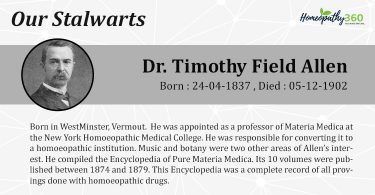Introduction
In the intricate tapestry of human biology, hormones play a pivotal role in orchestrating various physiological functions. Among these, testosterone stands out as a hormone that holds a special significance, especially in men. Often associated with masculinity, testosterone influences a myriad of processes in the body, impacting everything from muscle development to mood regulation. This article delves into the depths of testosterone, exploring its functions, the factors affecting its levels, and its implications for overall health.
Testosterone: A Hormonal Symphony
At its core, testosterone is a sex hormone primarily produced in the testicles in men and, to a lesser extent, in the ovaries in women. While it’s found in both genders, men typically have higher levels, contributing to the development of male reproductive tissues and the maintenance of male characteristics.
The Role of Testosterone in Development
During fetal development, testosterone plays a crucial role in shaping the male reproductive system. It stimulates the growth of the testicles and the formation of the prostate gland. As individuals reach puberty, testosterone takes center stage again, driving the development of secondary sexual characteristics such as facial and body hair, a deepening voice, and increased muscle mass.
Muscle Mass and Strength
One of the most widely recognized effects of testosterone is its impact on muscle development. Testosterone facilitates the synthesis of protein in muscle cells, promoting the growth and repair of muscle tissue. This not only contributes to the physical strength and endurance seen in many men but also plays a role in the regulation of body fat.
Bone Density and Testosterone
Beyond muscles, testosterone also influences bone density. Adequate levels of testosterone are essential for the maintenance of strong and healthy bones. This becomes particularly relevant as individuals age, as declining testosterone levels can contribute to the development of osteoporosis, a condition characterized by fragile bones.
Libido and Sexual Function
The connection between testosterone and libido is well-established. Testosterone is a key player in the intricate dance of hormones that regulate sexual function. It not only influences sexual desire but also contributes to the maintenance of erectile function and sperm production.
Testosterone and Mood Regulation
Testosterone extends its influence beyond the physical realm, impacting mental well-being as well. Research suggests a link between low testosterone is a hormone levels and mood disorders such as depression and anxiety. Maintaining optimal testosterone levels may contribute to overall emotional well-being and cognitive function.
Factors Affecting Testosterone Levels
While testosterone is crucial for various aspects of health, its levels can be influenced by a myriad of factors. Age, for instance, plays a significant role, with testosterone levels typically peaking in early adulthood and gradually declining with age. Lifestyle factors such as diet, exercise, and sleep also play a crucial role in maintaining optimal testosterone levels.
Diet and Testosterone
Nutrition plays a vital role in hormone regulation, and testosterone is no exception. Certain nutrients, such as zinc and vitamin D, are essential for testosterone production. A balanced diet that includes these nutrients can contribute to maintaining healthy testosterone levels.
Exercise and Testosterone
Regular physical activity, especially resistance training, has been shown to boost testosterone levels. Engaging in exercises that target large muscle groups, such as squats and deadlifts, can have a positive impact on testosterone production.
Sleep and Testosterone
Quality sleep is a cornerstone of overall health, and it also plays a role in hormone regulation. Research suggests that insufficient or poor-quality sleep can lead to decreased testosterone levels. Prioritizing good sleep hygiene is, therefore, crucial for maintaining hormonal balance.
Testosterone Replacement Therapy: Considerations and Controversies
In cases of clinically low testosterone levels, individuals may opt for testosterone replacement therapy (TRT) under medical supervision. While TRT can be effective in restoring hormonal balance, it comes with potential risks and should be approached with caution. It is essential to weigh the benefits against the potential side effects and consider alternative lifestyle interventions before opting for TRT.
Conclusion
In the intricate web of human biology, testosterone emerges as a hormone of paramount importance. Beyond its role in shaping physical characteristics, testosterone influences a myriad of functions, from muscle development to mood regulation. Understanding the factors that affect testosterone levels and adopting a lifestyle that supports hormonal balance is crucial for overall health and well-being. As science continues to unravel the complexities of hormones, testosterone remains a focal point in the quest for a healthier, more balanced life.



